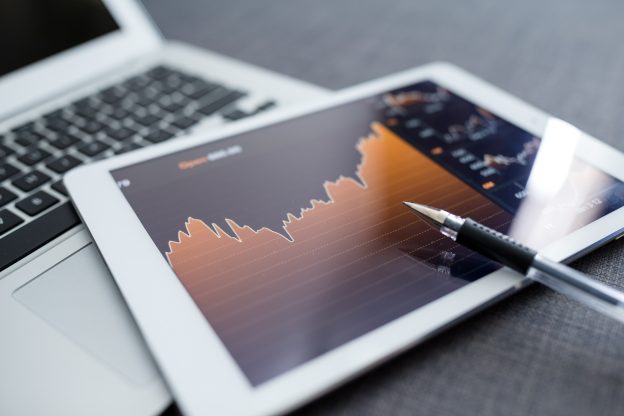
The market for new energy technologies has been growing rapidly in recent years, thereby attracting entrants from various sectors of the economy and resulting in many spectacular breakthroughs. An example of listed Chinese companies that have just entered in this market is Jinyuan, a cement supplier and a waste treatment specialist. On October 27, Jinyuan announced that the lithium carbonate from its production site in Baqian Cuo has been adopted for power batteries that are being installed in NEVs. This represents another milestone for the company after the production site outputted its first ton of crude lithium phosphate on May 25.
Earlier, Jinyuan stated that it aims to set up 8,000-10,000 tons per year of production capacity for lithium carbonate by this December so as to lay a solid foundation for the company to produce at least 8,000-10,000 tons of this material during 2023. Baqian Cuo is in China’s Tibet Autonomous Region. Jinyuan has established an operation there for the mining of lithium and the production of lithium carbonate. The investment in this production site is still being made through a holding subsidiary and has come to around RMB 800 million. The development of the production site is ongoing and divided into two phases.
The first phase entered operation before the end of December 2021. Its initial production capacity was 2,000 tons per year for pilot production. By this May, the first phase was producing the lithium carbonate that can be sold in the market, and it was also operating at full capacity. As for the second phase, it will involve the scaling up of the pilot production operation. Hence, the production capacity of the whole site will be expanded to 8,000-10,000 tons, and further optimization will be made to the mining and refining processes. The expanded production capacity of the second phase is expected to be fully loaded by November, thereby allowing Jinyuan to supply lithium carbonate to the market at an even larger scale.
In order to accelerate the development of the production site in Baqian Cuo, Jinyuan’s subsidiary Geji County Lithium Industry Development signed a cooperation agreement with Li Shan Science and Technology on March 5 this year. In accordance with this agreement, Li Shan has provided the processing equipment and technical support for 2,000 tons per year of production capacity. The electrochemical processing technology from Li Shan has undergone on-site testing and qualification. Furthermore, the installed equipment has outputted 500 tons and gone through 168 hours of stable operation. Therefore, the performance benchmark has been met, and both parties can now work on the remaining 8,000 tons per year.
Jinyuan started off as a supplier for cement and reinforced concrete. Later, its cement kilns were also used to provide services such as waste treatment and recovery of valuable metals. The company has now expanded into many other sectors and is operating across many provinces in China. Its products are purposed for a wide range of infrastructure-related applications, including railroad, public roads, airports, seaports, irrigation systems, urban housing units, civil buildings, and new village infrastructure.
With the rise of new energy technologies, Jinyuan is now in a haste to develop businesses related to new energy materials. In fact, the company is transforming itself and gradually moving away from the traditional cement and building materials sector. Currently, the company’s new energy business mainly focuses on extracting and refining lithium in natural brine deposits. Then, the lithium is further processed to become the upstream materials used in Li-ion batteries.
Besides mining lithium from brine deposits, Jinyuan is also developing other sources of lithium supply. These sources include lithium refineries built on abandoned oil and gas projects and lithium recovery operations that consume recycled batteries and industrial slag. The company said that it is now building a network of battery recycling channels across China. Eventually, it will create a circular lithium economy that cycles from extracting and refining lithium in the upstream to harvesting lithium from dissembled batteries in the downstream.
On September 28, Jinyuan’s subsidiary Jinyuan New Energy signed a cooperation framework agreement with parties including the Design and Research Institute of Nanchong Southwest Petroleum University. Together, they will leverage their respective advantages to develop a lithium refining project that adopts the infrastructure of an existing oil and gas project. One of the parties to this agreement has developed a high-efficiency process for treating and using the waste water produced by oil and gas projects. The lithium refining project that they envision is an integration of various solutions: an environment-friendly waste water treatment system, a new kind of lithium refining technology, and an energy generation facility.
Just a day after the signing of the aforementioned cooperation framework agreement, Jinyuan’s other subsidiary Jinyuan New Materials inked a deal with Wuhao to form a joint venture to develop a commercial process for recovering lithium from industrial slag. Wuhao has been accumulating expertise on treating solid wastes such as the industrial slag that contains lithium. The company has also produced several high-value technological innovations in this area. Specifically, it has the core technologies and a total solution for processing lithium-rich slag. Furthermore, these technologies have been qualified and shown to yield a good result.
This article is a translation of a Chinese article posted by TrendForce. It contains information that is either sourced from other news outlets or accessible in the public domain. Some Chinese names are transcribed into English using Hanyu Pinyin.
(Source: Jinyuan)







